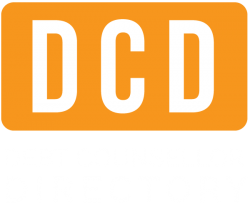Reduced Installments
The most significant benefit of the debt counselling process is the fact that a consumer will enjoy reduced installments on a monthly basis. The whole sprit of debt counselling is to bring consumers back into a state of affordability.
Reduced installments are achieved by reducing interest rates and/or extending terms of the applicable debt. South Africa has one of the highest debt to household-income ratios in the world. South African consumers pay close to 80% of their disposable income toward debt repayments each month.
When considering a consumer budget, the effect of reduced installments is significant. Living from month to month barely scraping by is the reality for so many consumers. Working with a debt counsellor can drastically improve a consumer’s financial affairs.
The problem starts at the beginning when a consumer applies for credit. The credit provider is obliged by law to conduct a proper affordability assessment. A proper affordability assessment will ensure that a reduction in installments later is not necessary, but unfortunately this is not the case.
Credit providers grant credit based on a consumer’s credit profile and in many cases neglect to do a proper assessment. A consumer might be able to pay the first month or two but at some point, the lack of affordability will catch up, and the installments need to be reduced through the debt counselling process.
Once a consumer falls behind on debt repayments credit providers will typically attempt to collect the arrears amount. The reason why the consumer fell behind in most cases is because the consumer could not afford to make the required payment. Trying to catch up a payment that was missed will put more strain on a consumer’s cashflow. An additional catch-up payment needs to be made as well as the normal monthly installment.
In the scenario where a consumer has more than one debt account to pay, the above-mentioned situation will most likely cause the consumer to fall behind on other accounts as well. A few accounts might fall into arrears and put significant strain on the consumer’s budget. Each credit provider would want their account to be brought up to date. At some point this will become impossible for a consumer with a constrained budget.
There can only be one of two solutions to improve the situation for a consumer who find him or herself in a tight financial spot. One, the consumer can increase his or her income on a monthly basis. In today’s economic climate income is not keeping up with inflation. Increases for salaried individuals are also not where it needs to be to bring about real change in a consumer’s finances. This option seems to be the best solution but in reality, it is unobtainable for the majority of South Africans. This leaves us to rather look at the second option.
The consumer can decrease expenses by applying for reduced installments with a registered debt counsellor. The installments will be reduced in line with the consumer’s affordability. The reduction will also be to a level that will make it possible for the consumer’s debt to be settled in a reasonable amount of time. Reduced installments need to be calculated carefully. The interest that is added to the account must not be more than the installment paid. Over time, the reduced installments need to bring the account balance down to zero.
Only a registered debt counsellor is can effectively negotiate reduced installments with a consumer’s credit providers. The National Credit Act give the debt counsellor a mandate to engage with a consumer’s credit providers, and to present a repayment plan containing reduced installments and reduced interest rates which will be reasonable to the credit provider and affordable to the consumer.
